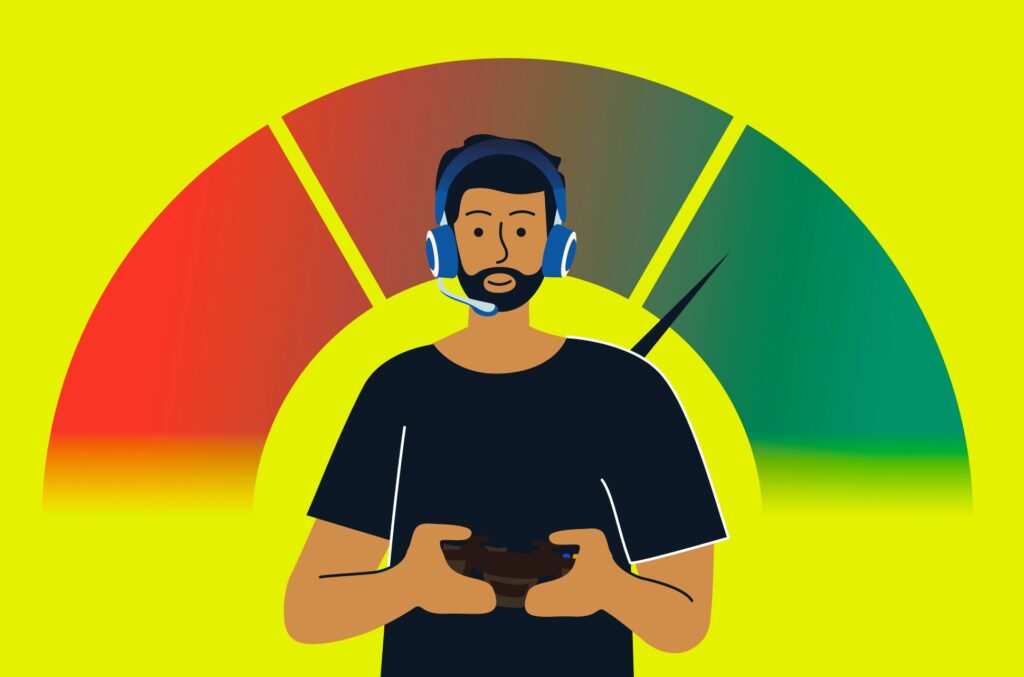Online gaming has become one of the most popular forms of entertainment worldwide. Whether you’re playing casual games or competing in professional eSports tournaments, the speed and quality of your internet connection can significantly affect your gaming experience. In this article, we will explore how different aspects of internet speed impact online gaming and provide tips for optimizing your connection for the best performance.
What Is Internet Speed and Why Does It Matter?
To understand how internet speed impacts gaming, it’s important to know what it consists of. Internet speed is generally broken down into the following components:
- Download Speed: This refers to the rate at which data is transferred from the internet to your device. For gaming, download speed is primarily important for downloading game updates, patches, and files.
- Upload Speed: Upload speed measures how fast data is sent from your device to the internet. This is crucial for activities like hosting multiplayer games or streaming.
- Ping (Latency): Ping is the time it takes for a data packet to travel from your device to the game server and back. Lower ping means faster reaction times and smoother gameplay.
- Jitter: Jitter refers to the variability in ping, which can cause unstable gameplay and lag.
The Importance of Low Ping in Online Gaming

One of the most critical aspects of internet speed for gamers is ping. Ping measures the delay between your action and the server’s response. A high ping (over 100ms) can cause significant lag, making fast-paced games frustrating and difficult to play.
In fast-action games like Call of Duty or Fortnite, high ping means your character’s actions will be delayed. You might notice that shots don’t register or that your character moves erratically, putting you at a competitive disadvantage.
For optimal gaming, your ping should ideally be below 50ms. Anything over 100ms can lead to noticeable lag, making games unplayable.
The Impact of Download and Upload Speeds on Gameplay
While ping is often the most noticeable issue for gamers, download and upload speeds also play a role in the overall gaming experience. Why you need to check your internet speed before an important game, the answer is in our article.
- Download Speed: In games that require frequent updates, such as League of Legends or Fortnite, having a fast download speed is crucial for getting patches and new content quickly. A download speed of at least 25 Mbps is recommended for smooth online gaming and streaming.
- Upload Speed: Upload speed is particularly important for multiplayer games or for streaming your gameplay. If you’re hosting a game, such as in Minecraft or Rocket League, a slow upload speed can cause delays for other players connecting to your server. Similarly, streamers should ensure their upload speed is fast enough to handle the data being sent to platforms like Twitch or YouTube.
What Happens When Your Internet Speed Is Too Slow?
If your internet speed isn’t fast enough, you’ll experience several issues that negatively affect your gaming performance:
- Lag: High latency or ping can cause severe lag, resulting in delayed inputs and actions. This can make competitive games unplayable.
- Stuttering and Frame Drops: A slow connection may lead to frame drops or stuttering, especially in graphically intensive games like Red Dead Redemption 2. This can cause you to miss crucial moments in the game.
- Connection Drops: Poor internet speed can cause frequent disconnects from the game server, resulting in loss of progress and a disrupted experience for other players.
How to Optimize Your Internet Speed for Gaming

To ensure you get the best possible online gaming experience, here are some tips to optimize your internet connection:
- Use a Wired Connection: While Wi-Fi is convenient, a wired Ethernet connection provides a more stable and faster connection, reducing lag and improving overall performance.
- Upgrade Your Internet Plan: If you’re experiencing lag or slow speeds, consider upgrading to a plan that offers higher download and upload speeds, especially if you’re playing on multiple devices.
- Close Unnecessary Applications: Background applications such as video streaming, file downloads, or cloud backups consume bandwidth. Close these before gaming to ensure the best connection for your game.
- Choose the Right Server Location: Some games allow you to choose the server location. Opting for a server closer to your geographical location can significantly reduce ping and improve latency.
- Optimize Your Router Settings: Make sure your router is configured to prioritize gaming traffic. Use Quality of Service (QoS) settings to ensure your internet connection is dedicated to gaming when needed.
In summary, internet speed plays a crucial role in determining the quality of your online gaming experience. High ping, slow download or upload speeds, and unstable connections can all lead to lag, stuttering, and disconnections. To enjoy smooth, fast-paced gaming, it’s important to optimize your internet connection by using a wired connection, upgrading your plan, and ensuring your router settings are configured properly.
For more information on internet speed standards, you can visit Wikipedia on Internet Speed.
By taking these steps, you’ll be well on your way to a better online gaming experience, with fewer delays and smoother gameplay.

